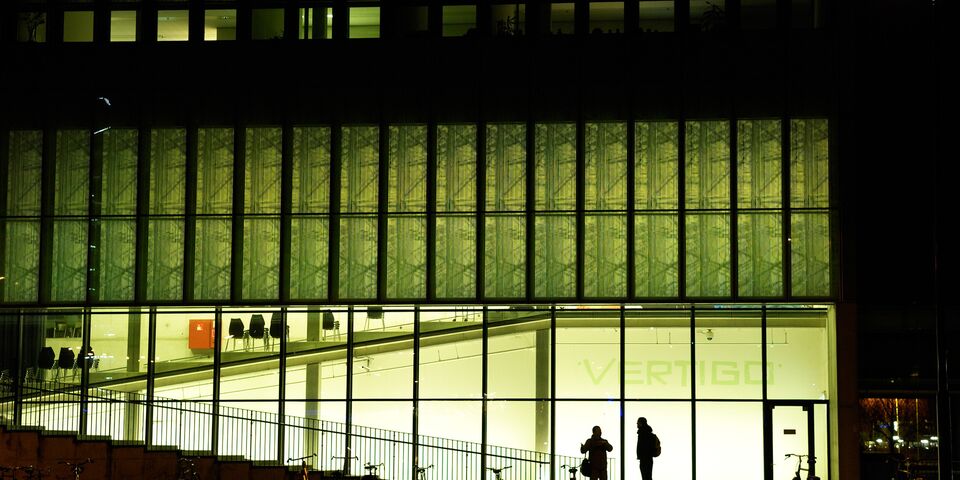Evening lectures to remedy timetable problems
As of February 2016 evening lectures are to make an end to the problems of scheduling courses. “We prefer spending money on more lecturers to building extra lecture rooms”, says Executive Board member Jo van Ham. Last week the staff of various individual departments were notified. First-year students will remain free from evening lectures.
Starting in the coming third quartile, classes will be timetabled also for the ninth and tenth hour, a period coming between 18.45 to 20.30 hours. That message was communicated to staff members of individual departments last week. In some cases departments only invited the scientists, while other departments had meetings where the support staff were present as well. “This choice could be made by departments themselves”, Van Ham explains.
Van Ham says that in February it will still be a limited number of courses, “some five or six.” Only in the next academic year will the number of evening classes increase considerably. “Then there will be some twenty to thirty”, says Van Ham. “And this is not just a temporary thing, although the completion of the renovated Hoofdgebouw in 2018 will give us some more room to breathe. Our expectation is that TU/e will continue to grow over the coming years so that evening lectures will be there to stay.”
Van Ham says there is an obvious reason for this introduction: “The growth of our student intake has caused a shortage of rooms. By introducing evening lectures we create the extra space we need. For a start, this will commence as early as in the third and fourth quartiles of this academic year.” It has been agreed that no evening classes will be timetabled for first-year students. Not now, nor in the coming academic year.
Maartje Hoop-Houben, the central timetable officer at STU, confirms the need. “At the beginning of this academic year we still managed to get almost everything timetabled. However, groups increased in size after all and that caused everything to shift again.” Hoop-Houben adds that in the first two quartiles five evening lectures were presented already, often at the request of lecturers themselves.
According to Van Ham there is a shortage of big lecture halls in particular. “The problem is less acute for smaller rooms, because we see that on average some forty to fifty percent of those are free. We have decided not to build extra rooms, but to spend extra money on lecturers instead.”
The timetable planning will have to take into account the personal circumstances per department of individuals teaching evening classes. “It’s up to departments to try and provide tailor-made work. It should be possible for anyone for whom there are special reasons preventing them from teaching evening classes to switch with colleagues who have less or no trouble doing so”, Van Ham explains.
Working hours scheme
In June of last year a new working hours scheme for TU/e was agreed with the unions. In that scheme, which entered into force on August 1, 2014, agreements were made about wider and more flexible working hours. Marjo van der Valk, representative of CNV Publieke Zaak at TU/e, explains that this means that employees who entered their employment after August 1 are bound to the new scheme. For employees whose contracts predate August 1 the existing agreements about timetables would remain effective.
However, the arrangement also specifies that ‘in exceptional situations the employer can decide that certain working hours are designated unilaterally for employees. Van der Valk alleges that there is no exceptional situation in this case. “It’s not as if the university is to come crashing down. The unions have urged the university several times to take stock of the people who do not mind working evening hours. This has not been done and now we see a fully reversed procedure taking place. The board should have broached this issue to the community at a much earlier stage, so people would have had enough time to think along about it.”
Van Ham says that alternatives were proposed by the departments in the past few days already. “Thus, it was suggested various times to start earlier, for instance at half past eight, and to shorten the breaks. Although that cannot be realized yet, due to the fact that the hours are fixed, it is definitely an option that can be considered in further discussions.”
That people are worried about a further increase in their workload or disruption of their social lives is something Van Ham can imagine very well. “Still, evening lectures have already been introduced at a large number of Dutch universities by now. We do try to minimize the effects as best we can. That can be achieved by making sound agreements about this within the departments.”
Van der Valk is afraid that the introduction will lead to tension between lecturers and their group leaders. “That is something we definitely wish to prevent as unions, for there’s pressure enough already on people within this organization.”
Today Chemical Engineering and Chemistry is the last department that is visited. Van Ham also adds that Internal Affairs is looking into matters such as security and catering during nocturnal hours. Before long, the Student Advisory Body (SAO) and the student groups from the University Council are to be consulted as well.


Discussion